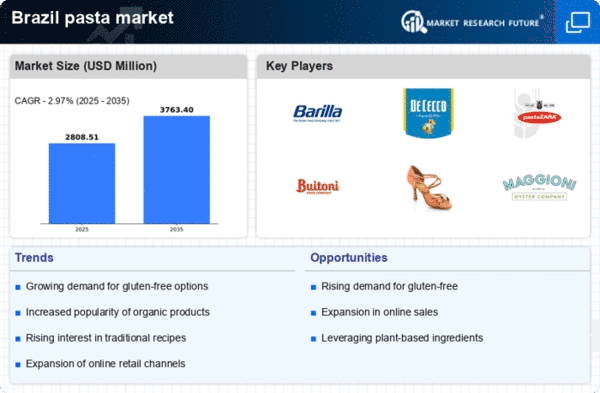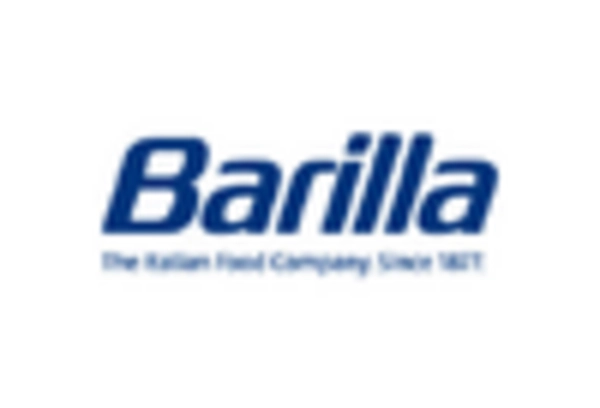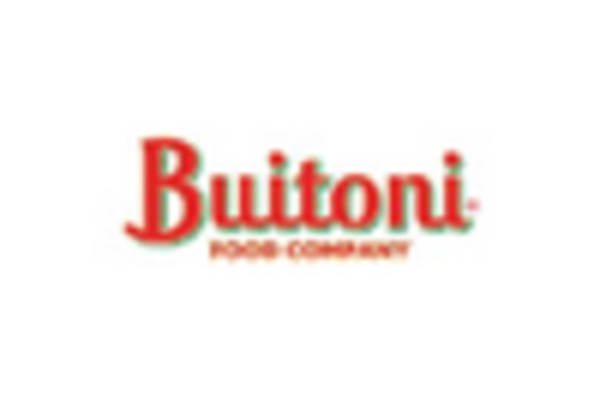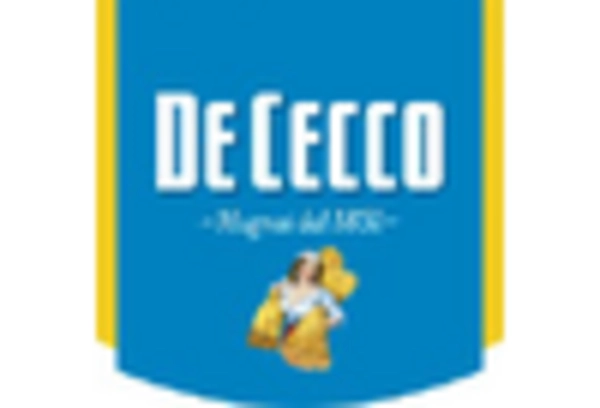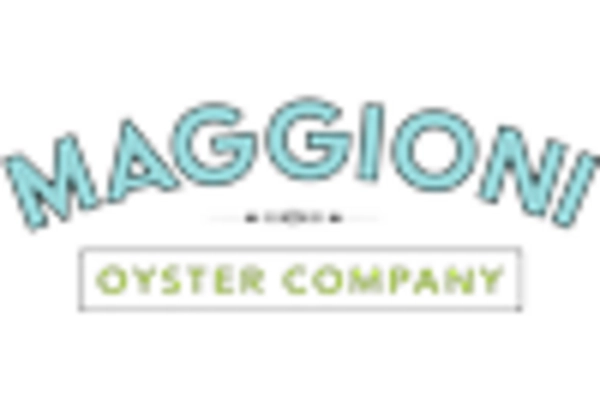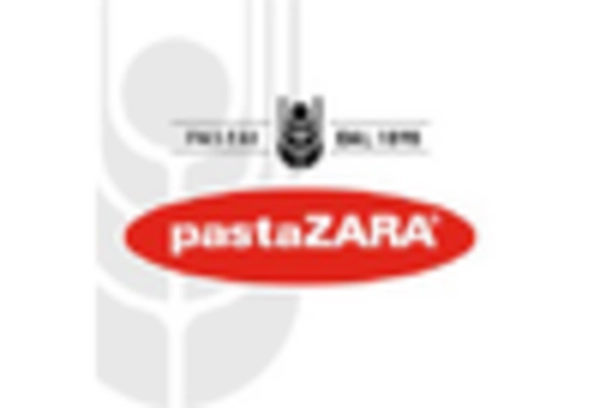Growth of Plant-Based Alternatives
The pasta market in Brazil is witnessing a significant rise in the popularity of plant-based pasta alternatives. As health-conscious consumers increasingly prioritize nutrition, products made from legumes, whole grains, and vegetables are gaining traction. This shift is supported by a growing awareness of dietary choices and their impact on health. In 2025, plant-based pasta options represent around 15% of the overall market, reflecting a shift in consumer preferences towards healthier and more sustainable food options. The pasta market is adapting to this trend by innovating and expanding product lines to include these alternatives, thereby appealing to a broader audience.
Rising Demand for Traditional Pasta
The pasta market in Brazil experiences a notable increase in demand for traditional pasta varieties, driven by cultural preferences and culinary heritage. As consumers seek authentic Italian flavors, the market sees a shift towards artisanal and handmade pasta products. This trend is reflected in the growing number of local producers who emphasize quality and authenticity. In 2025, traditional pasta accounts for approximately 60% of the total pasta market, indicating a strong consumer inclination towards familiar and comforting food options. The pasta market benefits from this trend as it aligns with the broader movement towards preserving culinary traditions while catering to modern tastes.
Increased Focus on Sustainable Packaging
The pasta market in Brazil is experiencing a shift towards sustainable packaging solutions as environmental concerns gain prominence among consumers. Brands are increasingly adopting eco-friendly materials and practices to reduce their carbon footprint. This trend is not only a response to consumer demand but also aligns with regulatory pressures for sustainability. In 2025, it is estimated that 30% of pasta products utilize sustainable packaging, reflecting a commitment to environmental responsibility within the pasta market. This focus on sustainability may enhance brand loyalty and attract environmentally conscious consumers.
Emergence of Gourmet and Specialty Products
The pasta market in Brazil is seeing a rise in gourmet and specialty pasta products, catering to a more discerning consumer base. As culinary exploration becomes more prevalent, consumers are willing to pay a premium for unique flavors, shapes, and ingredients. This trend is evident in the increasing availability of specialty pasta made from exotic grains or infused with herbs and spices. In 2025, gourmet pasta products are projected to account for about 20% of the market, indicating a shift towards premium offerings. The pasta market is capitalizing on this trend by diversifying product lines and enhancing marketing strategies to attract gourmet enthusiasts.
Influence of E-commerce on Purchasing Behavior
The pasta market in Brazil is significantly influenced by the rise of e-commerce platforms, which have transformed consumer purchasing behavior. With the convenience of online shopping, consumers are increasingly opting for home delivery of pasta products. This trend is particularly pronounced among younger demographics who value convenience and variety. In 2025, online sales account for approximately 25% of total pasta market sales, indicating a shift in how consumers access and purchase their favorite products. The pasta market is responding by enhancing online presence and optimizing supply chains to meet the growing demand for e-commerce solutions.


